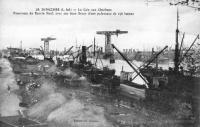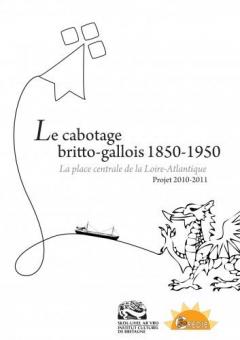The great adventure of the Breton-Welsh coastal navigation 1850-1950. The CREDIB in search of testim



To evoke dynamic and rich Brittany, the Bretons usually take the example of the end of the Breton State period. Brittany at that time is opened on Europe by its numerous harbors which make the economic exchanges easy. A contrario, the periods of decline which followed are associated with a withdrawal within the limits of a France concerned by the soil.
This display, a little caricatural, must be widely qualified and the history of the economic exchanges between Brittany and Wales – during this period of a century, spread on the last two centuries– when deepened, will brings the proof.
The CREDIB is in search of testimonies and documents connected to this maritime and human adventure which concerned a lot of Breton and Welsh families untill the 1950s.
The subject of the coastal navigation opens very wide perspectives of study. The coal, energy source of the industrial revolution, is in the center of these exchanges and the coastal navigation is the most economic vector, perfectly adapted to the geographical situation of Brittany. This history concerns the whole territory of Brittany and also Wales. The project, born in 2007, of a research about the forges of Trignac (voir notre article) extends in many other places of Brittany today, the history of which is connected to this coastal navigation: Nantes, Saint-Nazaire, Pornic, Redon, Vannes, Auray, Lorient, Hennebont, Loctudy, Lannion, Saint-Brieuc, Saint-Malo, etc.
Sant-Nazer, the Breton harbour which had most links with Wales
The department of Loire-Atlantique, with its two big harbours: Nantes and Saint-Nazaire and the industrial complex of the Basse Loire, was – from the 1850s to the 1930s – in the heart of the coastal navigation between Wales and Brittany connected to the Welsh coal. Let us remind that the development of the industry in the Basse Loire owes a lot to the contribution of British and specially Welsh people.
Hubert Chémereau
Sant-Nazer, Brittany, 2009-12-20
Translation from French : Maryvonne Cadiou.
See the original in French on (voir le site) La grande aventure du cabotage britto-gallois 1850-1950 (december 20th, 2009).
If you possess any – even only a few – informations, documents, souvenirs or memories, please be kind enough to contact directly the author and president of the CREDIB, by clicking on “Auteur” just underneath. He will be grateful.
------------------------------------------------------------
The CREDIB, «Research and broadcasting center of the Breton Identity», is an association law 1901, created in Saint-Nazaire in 2000, member of the Cultural Institute of Brittany.
It works at the recognition and the promotion of the Breton identity in Nazairian Country (Loire-Atlantique).
The CREDIB also works to maintain alive and stregthens the links between Saint-Nazaire and the British Islands. It so maintains numerous contacts with Scotland and Wales.
10 street Aristide Briand, F-44600 Sant-Nazer/Saint-Nazaire. (voir le site)
.
■